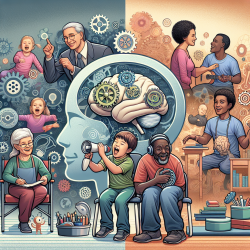The research article "The Strengths of Wisdom Provide Unique Contributions to Improved Leadership, Sustainability, Inequality, Gross National Happiness, and Civic Discourse in the Face of Contemporary World Problems" by Igor Grossmann and Justin P. Brienza provides a compelling exploration into how wisdom can enhance leadership and societal well-being. This blog post aims to distill key insights from the research and offer practical guidance for practitioners seeking to integrate these findings into their professional practice.
The Role of Wisdom in Leadership
Leadership today requires more than just intelligence; it demands wisdom. Leaders must navigate complex social dynamics, make ethical decisions, and inspire cooperation among diverse stakeholders. The article highlights how wisdom-related qualities like intellectual humility and open-mindedness can enhance leadership effectiveness. For instance, leaders who demonstrate these traits are better equipped to handle uncertainty and change, fostering a culture of collaboration and ethical decision-making.
Fostering Gross National Happiness
Gross National Happiness (GNH) is an innovative concept that prioritizes the well-being of citizens over mere economic wealth. The research suggests that wise reasoning contributes significantly to GNH by promoting interpersonal well-being, superior emotion regulation, and a balanced outlook on life. By fostering wisdom in education and policy-making, societies can work towards enhancing overall happiness and satisfaction among their populations.
Addressing Inequality through Wise Reasoning
Socioeconomic inequality is a persistent challenge worldwide. The research indicates that individuals from lower socioeconomic backgrounds often exhibit wiser reasoning in interpersonal conflicts due to their heightened social attunement. This insight suggests that promoting inclusivity in leadership positions could lead to more equitable decision-making processes that consider diverse perspectives.
Sustainability: A Wise Approach
Sustainability challenges require a wise approach that balances short-term needs with long-term environmental goals. Wise reasoning encourages an understanding of complex interdependencies within ecological systems, promoting solutions that integrate economic, environmental, and social objectives for sustainable development.
Improving Civic Discourse
Political polarization poses a significant threat to societal cohesion. The research highlights how wise reasoning can reduce intergroup bias and foster bipartisanship by encouraging individuals to consider diverse viewpoints. By promoting wise reasoning at a societal level, we can work towards more inclusive civic discourse that prioritizes collective benefits over individual or group interests.
Practical Applications for Practitioners
Practitioners can implement strategies to foster wisdom within their organizations or communities. Educational programs focusing on critical thinking, empathy, and ethical decision-making can cultivate wise reasoning among students and professionals alike. Additionally, creating environments that encourage open dialogue and diverse perspectives can enhance decision-making processes.
Encouraging Further Research
The insights from this research provide a foundation for further exploration into the applications of wisdom in various domains. Practitioners are encouraged to engage with this growing body of knowledge to develop innovative solutions for contemporary challenges.
To read the original research paper, please follow this link: The Strengths of Wisdom Provide Unique Contributions to Improved Leadership, Sustainability, Inequality, Gross National Happiness, and Civic Discourse in the Face of Contemporary World Problems.










